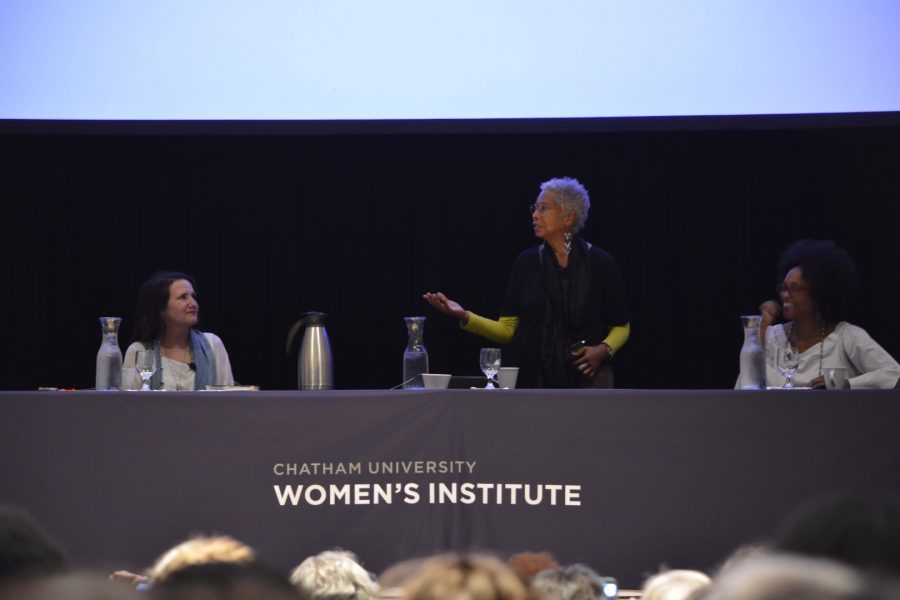Photo: Janelle Moore
Author: Kaylee Spitak
On Thursday, members of the Chatham community and guests packed themselves into Campbell Memorial Chapel for a showing of the second film in the JUST Films series, “Yemanja: Wisdom from the African Heart of Brazil.” Once the chapel had been filled to capacity, remaining attendees were then seated in Eddy Theater for the screening. Before the beginning of the movie, Frank F. Hightower (Omi Ki Ya Loda), Priest of Yemoja, lead everyone in a blessing ceremony for the event.
The documentary centered around the tragic history, current societal struggles and the resilient culture of Candomblé, a uniquely Afro-Brazilian spirituality that resulted as a transformational legacy of Africans forced to Brazil in the Trans-Atlantic slave trade.
The story is told through the voices of elder women leaders, keeping with their oral traditions, including the 109-year-old daughter of a former slave. Candomblé, often referred to as the religion of nature, has not only survived but is flourishing in Salvador da Bahia, Brazil’s first capital.
After the screening, guests were invited to participate in a discussion panel, featuring Dr. Rachel Harding, Associate Professor of Indigenous Spiritual Traditions at the University of Colorado, Donna C. Roberts, the producer and co-writer of the film, and Pulitzer Prize-winning author and narrator of “Yemanja,” Alice Walker.
During the panel, Roberts told the story of her inspiration for the film. Originally, Roberts had been studying abroad while in graduate school when a colleague had recommended that Roberts make a stop in Bahia.
“I saw this poster of the Sisters of the Good Death…and there were these sisters, staring stately into the camera, and I thought ‘Oh my God, I need to know more,’” Roberts explained.
Alice Walker also felt a deep connection to the people of Bahia. “I escaped church when I was thirteen,” Walker joked, much to the delight of the audience. “I thought that there had to exist somebody, somewhere, that recognized that the real God is nature. And I knew when I saw the people dancing with flowers during Yemanja– I knew those were my people.”
Walker went on to elaborate on the contemporary relationship of her connection to Candomblé. “We want all people to know that we are Earthlings—regardless of race, color, culture, all of that crazy stuff. We are born of the Earth, made of it, and we must protect it.”
Walker then paused, took a breath of composure, and began again. “Any faith not grounded by nature is dead,” she said.
Dr. Harding agreed wholeheartedly with Walker. “I didn’t grow up in church,” Harding began. “But my mother’s kitchen table was a church. My mother had maintained a deep stand of this African mysticism, whether she recognized it or not… And when I went to Bahia, I felt like I was home.”
The panel continued to expand upon the importance of caring for our environment and our civilization, with Walker expressing her concerns of many being “spiritually impoverished” in our society.
“We are so lucky,” Walker said. “Appreciating and taking care of our Earth is just not something that can be done in two hours every Sunday.”
Up next in the JUST Films series is “A Thousand Voices” on November 15, 2016, at 6:30 p.m. The films will continue through the end of this year and into 2017.


